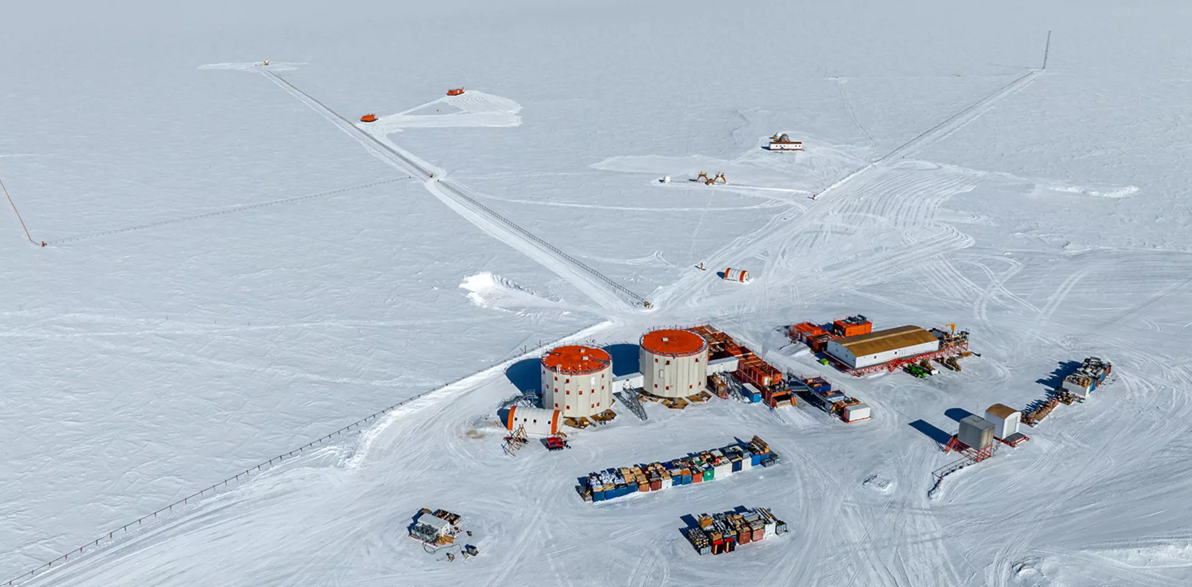The French Polar Institute, Ifremer, and CNRS are joining forces to strengthen France’s scientific leadership in the study of the poles and their role in the climate system, the evolution of their biodiversity, and the effects of ongoing changes on societies. This alliance takes shape through two key actions: under the direction of David Renault, appointed on July 11, 2025, the Polar Institute will become a very large research infrastructure (IR*) attached to Ifremer by the end of 2026. The scientific coordination of polar research will be led by CNRS, which recently published the first French polar research strategy.
The polar regions are undergoing rapid and unprecedented transformations driven by climate disruption and other human impacts, with major consequences on ecosystems and local populations. These faster-than-expected changes highlight the urgent need to intensify research to better understand the dynamics and impacts.
Every year, several hundred researchers benefit from the support of the Polar Institute to join polar research stations where they conduct groundbreaking studies—not only on climate, terrestrial and marine environments, biodiversity, and geology, but also in fields such as astronomy, seismology, and human biology.
Successor to the French polar expeditions of Paul-Émile Victor, the French Polar Institute has implemented over 80 scientific projects annually since its creation in 1992. French polar research is recognized internationally for its excellence thanks to the expertise of the Institute’s teams, which host researchers at six scientific stations across the globe: from Dumont d’Urville and Concordia (Franco-Italian) stations in Antarctica to the AWIPEV (Franco-German) station in the Arctic, and including three stations—Port-aux-Français in the Kerguelen archipelago, Port-Alfred in the Crozet archipelago, and Martin-de-Viviès on Amsterdam Island—administered by the French Southern and Antarctic Lands, where the Institute also manages the maintenance and supply of about forty refuges and remote sites.
Jean-Luc Moullet, Director General for Research and Innovation at the Ministry of Higher Education and Research:
“French polar research stands out internationally for its scientific excellence and disciplinary diversity. It must continue to benefit from high-quality research infrastructures. This is the purpose of the measures announced. They primarily aim to strengthen the coordination of scientific leadership in polar research by affirming CNRS’s role in foresight and developing a programmatic vision for polar research. Moreover, regarding IPEV, which plays a central role in supporting this excellent French polar research, the goal is to reinforce its sustainability as a logistical operator. This involves a three-level project:
- Label IPEV as a very large research infrastructure (IR*) to recognize the national importance of this research infrastructure;
- Integrate Ifremer as a dedicated directorate to benefit from synergies offered by a more established organization;
- Appoint a new director responsible for leading this project.”
The French Polar Institute to be Attached to Ifremer Under the Direction of David Renault
On July 11, at the General Assembly of the Polar Institute, David Renault, Professor at the University of Rennes, was appointed director. Already supported by CNRS, which directly allocates resources, IPEV will, by the end of 2026 and following the model of the French Oceanographic Fleet, be labeled as a very large research infrastructure (IR*) and integrated into Ifremer as a dedicated directorate.
Ifremer is committed to ensuring that the new directorate of the French Polar Institute continues to deploy, under the best conditions, its expertise, resources, and means in service of scientific research in the polar regions. As with the IR* French Oceanographic Fleet, which Ifremer has operated since 2018 for the entire scientific community, we will work hand in hand with universities and national and international organizations relying on the Polar Institute. This is essential since polar research needs to accelerate its efforts to understand ongoing phenomena at the poles driven by global changes, which, I remind you, have major consequences on the global ocean.”

François Houllier, President and CEO of Ifremer, Brest, 2022
“The polar regions are undergoing profound upheavals with major local, regional, and global impacts on different timescales. The cryosphere, for example, plays a key role in climate regulation and biodiversity preservation, and its melting has critical effects on sea levels and thermohaline circulation. Therefore, understanding the environmental consequences of these changes requires better consideration of their nested effects within the ‘polar land–ocean’ continuum. This strategic alliance between the Polar Institute and Ifremer will help break down silos in research and significantly boost France’s scientific potential within a ‘One Environment’ framework.”
David Renault
Director of the French Polar Institute
Ensuring France Remains a Pioneer in Polar Research
A leading player in polar research, CNRS unveiled on June 9, on behalf of its program agency, the synthesis of the first foresight study on French scientific research in the polar regions. Presented at the third United Nations Ocean Conference (UNOC-3) in Nice, this document marks an ambitious commitment for the coming years and highlights the need for strengthened resources for science in and about the polar worlds.
Polar science is a flagship of French research. It must form a major pillar of French polar diplomacy as embodied in the polar strategy led by Ambassador Olivier Poivre d’Arvor. To do this, it can rely on the remarkable capabilities of the French Polar Institute, which must be strengthened to sustain its capacity to support and project scientists to both poles. Polar research must also benefit from national coordination that will create synergy among all actors—organizations, universities, and ministries—involved in polar research. CNRS is proud to lead this ambition for the entire community and will work to defend and drive the ambitions set out in the newly published French polar foresight.




